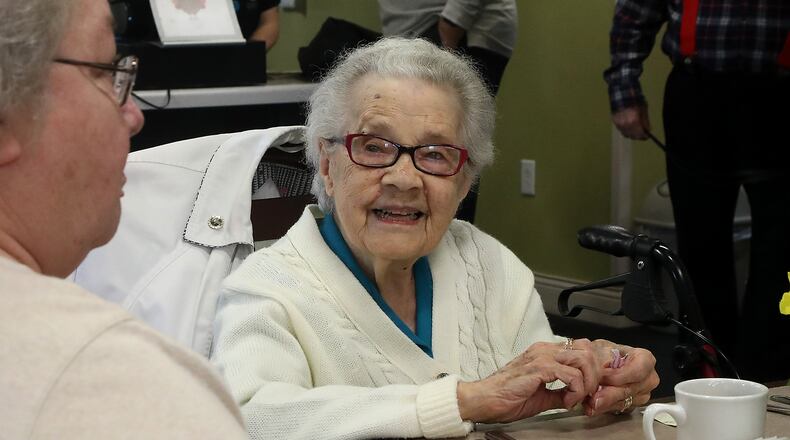“You really don’t see it ‘til you see the other side,” he said.
When residents move in and see what they were missing, some say they wish they would have made the transition years ago, he said.
Carson joined Shiela Wallace from the Ohio Masonic Home and Robin Kent, business development coordinator at BrookHaven Retirement Community in Brookville, in suggesting some questions that anyone who is considering a skilled nursing facility for a loved one should ask:
1. What amenities and activities are available?
Ask for a copy of the activity calendar. Does the facility also have evening and weekend activities? Night owls will want entertainment beyond the 9-to-5 workday.
2. How is the food?
Does the facility accommodate dietary restrictions and special diets? View the menus and sample a few meals.
3. What is the ratio of staff to residents, and what is staff turnover?
The government sets minimum staffing levels, but that isn’t always sufficient. “Just because that’s the minimum doesn’t mean that it’s good,” Carson said. The more staff to care for residents, the better, he said.
4. How does the facility handle concerns or complaints?
Nursing facilities generally have grievance forms or committees. After a loved one is at the facility, remember to ask direct questions and follow-up with any concerns. Let the facility know you are paying attention.
5. How does the staff respond to residents?
Ask yourself how staff reacted to residents even as you were given a tour. If a call light was on, did the guide grab help or pass on by? “If they’re ignoring it, that’s a problem,” Kent said.
6. Does the facility have private or semi-private rooms?
Buildings that are a decade or older will often have a mixture, but many residents don’t want to share rooms. Find out what is available.
7. How can I communicate with my loved one if the facility is locked down?
The COVID-19 pandemic brought this issue to the forefront. For example, the Ohio Masonic Home made sure that anyone who didn’t already have a laptop, tablet or other form of technology was set up with one and shown how to use it to keep in contact with loved ones.
8. Is the campus maintained?
See if the facility is clean, the buildings are well-maintained or if trash is strewn about outside. Outdoor areas like porches and courtyards with flowers can also make for a more pleasant community.
9. How do I pay?
Some facilities require a lump sum of money, while in others residents pay only monthly. Medicare, Medicaid and Veterans Affairs benefits may also be options. Speak not only to the facilities you are considering, but also to a financial planner.
10. What is the facility’s rating?
Check the ratings of the facilities you are considering. A star-rating system is awarded by the Centers for Medicare and Medicaid Services based on a survey, staffing and other measurements. “People need to remember sometimes that what is in their back door may not be the best,” Wallace said.
Credit: Bill Lackey
Credit: Bill Lackey
About the Author

